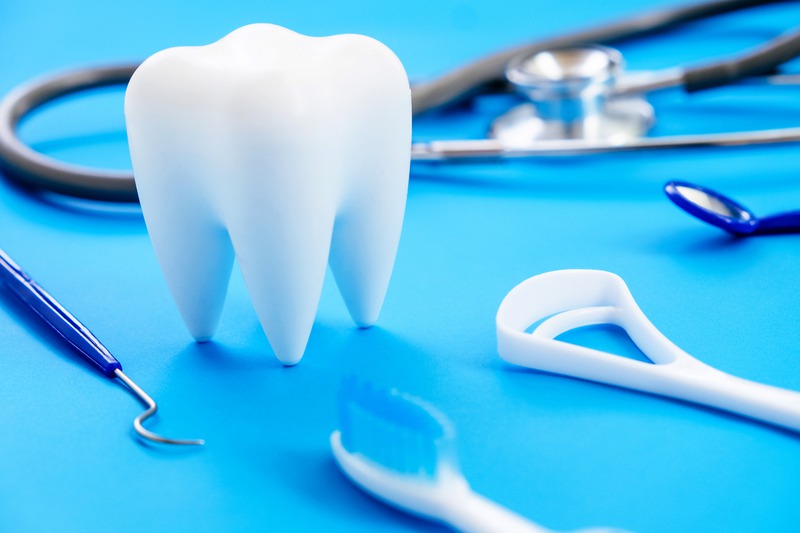Oral health is a vital component of overall well-being, yet it can sometimes be overlooked until noticeable problems arise. Recognizing when a dental issue requires urgent attention can prevent minor discomforts from turning into severe complications. This article outlines clear signs indicating the need for a prompt dental visit, helping individuals make informed decisions about their oral health. Prompt action not only addresses immediate concerns but also sets the foundation for long-term dental health.
Signs You Need to See a Dentist Immediately
It’s crucial to identify when dental care is necessary to avoid further complications. The following signs indicate it’s time to prioritize a visit to the dentist.
Persistent Toothache
A toothache that doesn’t resolve itself should never be ignored. Pain often signals underlying issues like infections, cavities, or deeper dental problems. Addressing it early can prevent escalation.
-
Constant or throbbing pain
-
Sensitivity while chewing or applying pressure
-
Swelling or inflammation around the affected area
Swollen or Bleeding Gums
Gums that bleed regularly might be an indication of gingivitis or other gum diseases. Early intervention can prevent these conditions from worsening, potentially saving teeth and bone structure.
-
Redness and puffiness
-
Bleeding after brushing or flossing
-
Persistent bad breath
Broken or Chipped Tooth
Whether due to injury or biting something hard, a broken or chipped tooth needs immediate attention to avoid further damage or discomfort. Treatment options, such as those offered by dental practices, can include ways to restore your smile with dental crown solutions, which protect the tooth and restore its functionality.
Signs of a broken or chipped tooth include:
-
Discomfort or sharpness around the tooth
-
Sensitivity to temperature changes
-
Visible chips or cracks
Loose Teeth in Adults
Loose teeth in adults could indicate periodontal issues or bone loss. It’s uncommon and, when noticed, should prompt an immediate dental evaluation to prevent tooth loss.
In adults, look for:
-
Teeth that move when touched
-
Changes in bite or tooth alignment
-
Recurring pain in the affected area
Sudden Tooth Sensitivity
Increased sensitivity can have multiple root causes, such as exposed roots, gum recession, or worn enamel. Identifying the underlying issue with a dentist will offer relief and prevent progression.
Jaw Pain or Clicking
Ongoing jaw pain or clicking sounds could indicate temporomandibular joint disorders (TMJ) or teeth grinding. These issues benefit from early diagnosis and professional treatment to prevent chronic discomfort.
Mouth Sores That Don’t Heal
Mouth sores should typically heal within two weeks, so if you notice that they do not improve, it’s wise to consult a dentist. Persistent sores may be more than just a minor issue; they could indicate infections or even more serious conditions such as oral cancer. It’s crucial to pay attention to the duration of mouth sores.
-
Make a note of when the sores appear and how long they last.
-
Seek dental advice if sores do not heal within the expected time frame.
Signs to Watch For
In addition to sores that do not heal, there are other signs you should be aware of. Any changes in your mouth that persist can serve as red flags. Notably, these may include increased pain, swelling, or changes in the color of the sores.
-
Monitoring these symptoms closely can help you address issues early.
-
Do not delay contacting a dentist if you see any concerning changes.
Bad Breath That Doesn’t Go Away
Persistent bad breath is another issue that can hint at underlying oral health problems. Problems such as gum disease, tooth decay, or dry mouth may contribute to this unpleasant condition. It’s essential to consider routine dental visits as a way to identify and treat the causes effectively.
-
Bad breath that lingers despite good oral hygiene may require professional evaluation.
-
Brushing your tongue and staying hydrated can help improve your breath temporarily.
Metallic Taste or Burning Sensation
Experiencing a metallic taste or burning sensation in the mouth often raises concerns. These symptoms can result from a range of health concerns, from medication reactions to dental issues such as infections.
Regular Check-ups and Cleanings
Even absent urgent symptoms, regular dental check-ups and cleanings are critical. Routines help maintain oral health and catch issues early. Routine visits to practices such as Essenmacher Family Dental ensure comprehensive care and proactive prevention of dental problems.
Routine dental visits are crucial for maintaining good oral health. These visits allow dentists to examine your mouth for any issues causing bad breath. Regular cleanings can remove plaque and tartar, contributing to bad breath and other dental problems.
-
If you notice bad breath, make an appointment with your dentist as soon as you can.
-
Your dental professional can provide personalized advice and treatment options.
Taking these oral health concerns seriously will help you maintain a healthier mouth. Addressing mouth sores and persistent bad breath with a professional can lead to better dental practices and overall health.
Aesthetic Concerns and Improvements
Concerns around dental aesthetics also deserve timely attention. Addressing these issues early can boost both confidence and oral health. Options to improve the appearance with porcelain veneers offer enhanced aesthetics while protecting teeth.
Final Thoughts
Recognizing when to seek urgent dental care is key to maintaining optimal oral health. Early detection of issues such as persistent toothaches, gum irregularities, or unexpected damages plays a vital role in preventing more serious complications. Regular dental visits further contribute to maintaining a healthy, confident smile. By understanding the signs outlined in this article, individuals can better gauge when it’s time to consult a professional, safeguarding their dental health for the future.



